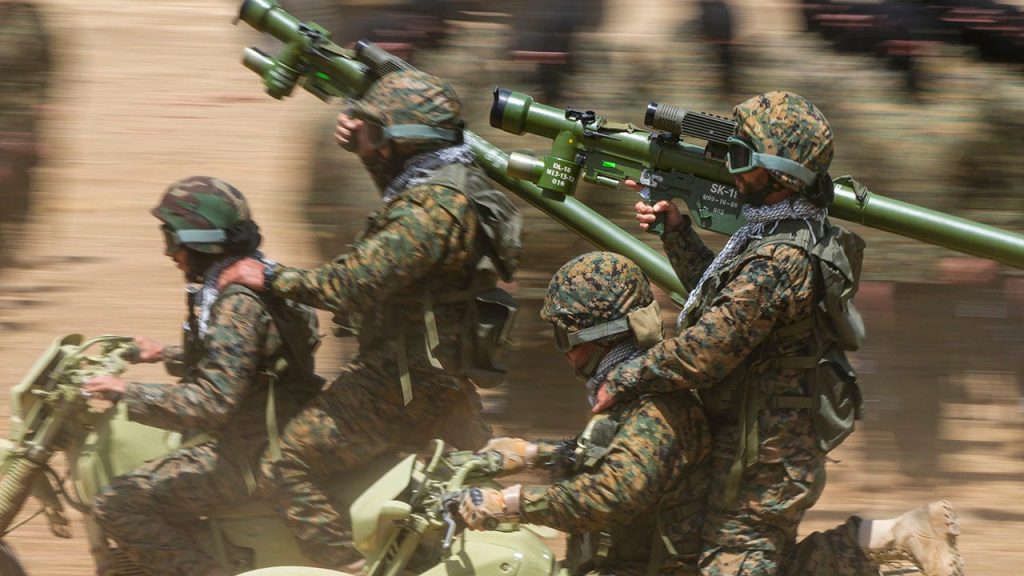Recent revelations underscore an alarming narrative regarding Hezbollah’s aspirations for aggression against Israel, particularly with the revelation of a planned military incursion referred to as “Conquer the Galilee.” According to intelligence obtained by Fox News Digital, an Israel Defense Forces (IDF) official stated that Hezbollah was in the process of orchestrating its own variation of the October 7 Hamas-led invasion, during which over 1,200 individuals—more than 40 of whom were American citizens—were killed. Fortunately for Israel, those plans were intercepted and dismantled at a high command level, specifically targeting Hezbollah’s elite Radwan force. This intelligence unfolded following the capture and interrogation of a key Hezbollah operative in southern Lebanon, further illuminating the depth of Hezbollah’s preparations for an offensive against Israel.
The captured Hezbollah operative detailed what can only be described as a chilling strategy aimed at forcibly entering and occupying northern Israel’s Galilee region. His remarks highlight a methodical approach to warfare, underlined by instructions for amassing critical intelligence on Israeli settlements, military resources, and the identification of tactical weaknesses. In a pre-meditated assault, the operative noted intentions to employ a barrage of thousands of rockets and advanced weaponry, setting the stage for a significant military offensive. The de-sensitized rhetoric surrounding civilian encounters was particularly troubling—encounters would result in either combat or the forced surrender of Israeli citizens, the latter leading to harsh fates for those who resisted.
The ideological roots of this aggressive plan can be traced back to Hezbollah’s leadership and its historical grievances aimed at Israel. As articulated by former Hezbollah General Secretary Hassan Nasrallah, the operational blueprint for seizing the Galilee has been in formation for over a decade. A strategic plan established by Nasrallah hints at his long-standing desire to breach Israeli defenses and anchor a permanent foothold in the Galilee, which holds significant historical and cultural resonance, being referenced in both Old and New Testament scripture. Israel’s recent military action, which resulted in the termination of Nasrallah’s leadership, was a deliberate effort to dismantle these plans, especially given the deep-seated animosities that have historically characterized Hezbollah’s stance towards Israel.
The strategic documents examined by the IDF provided abundant substance for understanding the logistical considerations behind these planned assaults. These writings specifically delineated operational maneuvers for attacking key Israeli towns, such as Kiryat Shmona, Nahariya, and Tiberias, preparing troops for comprehensive military exercises aimed at systematic occupation. Analysts have noted that the precise documentation, which included tasks such as outlining forces and developing tactical plans, underscores Hezbollah’s militarized approach, echoing historical precedents of the organization as a formidable regional militia. The execution of these plans, however, was significantly impeded by recent military operations that have decimated Hezbollah’s capabilities and institutional knowledge.
As the region remains volatile, the IDF has remained steadfast in asserting its commitment to neutralize Hezbollah as a credible threat. The prioritization of dismantling its command structures is bolstered by a series of successful military operations that have targeted key figures within the group, signaling a deliberate Israeli strategy to counter Hezbollah aggression preemptively. Despite such tactical victories, ongoing intelligence efforts highlight the complexities of effectively destabilizing an organization that has historically conducted asymmetrical warfare and has shown resilience in its operational capacities.
Lastly, the fragile cease-fire brokered by U.S. mediators, which currently interjects a tenuous pause in hostilities between Israel and Hezbollah, remains a critical aspect of addressing the broader geopolitical implications of this escalating conflict. That the U.N. peacekeeping force has been criticized for its ineffective deterrence of Hezbollah’s operational movements adds an additional layer of difficulty in establishing long-term peace. The fragility of this ceasefire, juxtaposed with the renewed clarity surrounding Hezbollah’s ambitious military strategies, raises profound concerns about the likelihood of future escalations and the potential ramifications for both Israel and the wider Middle Eastern landscape.

